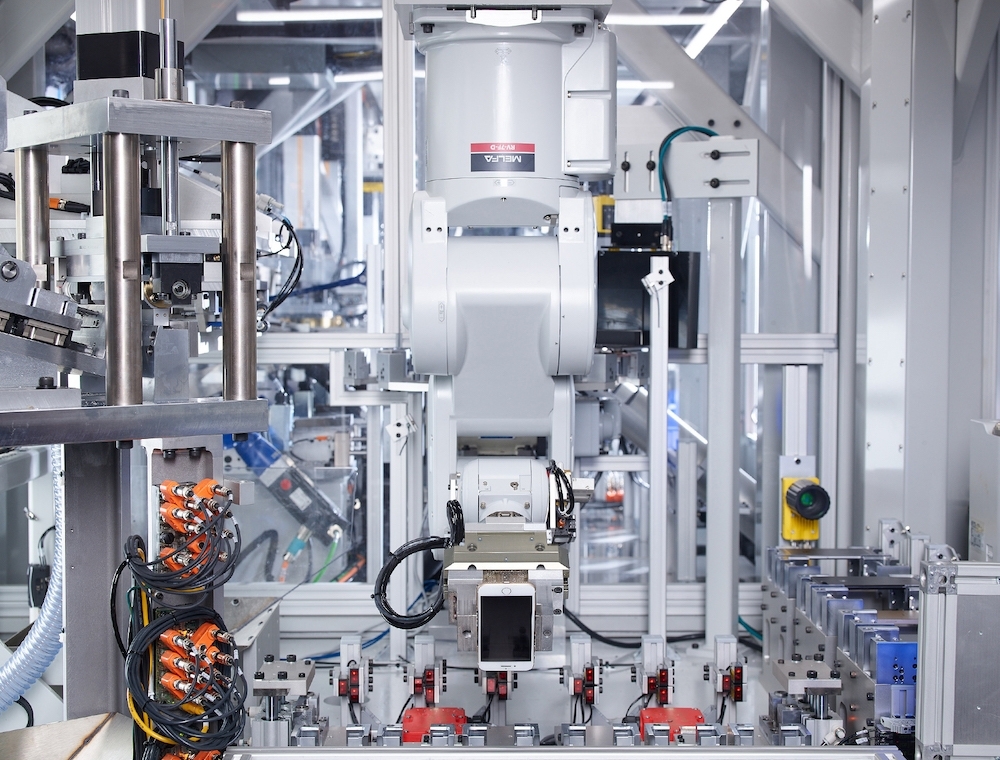Apple’s Tim Cook evangelizes responsible innovation in Popular Mechanics

Daisy, Apple’s recycling robot: Where iPhones go when they can’t be fixed…
Apple and CEO Tim Cook have guest edited this month’s edition of Popular Mechanics, arguing for corporate environmental responsibility, with articles on the destruction of our oceans, recycling, accessibility and how smart watches can prolong lives.
Social and environmental responsibility is good for business
The company also announced its second Impact Accelerator class, consisting of 16 Black-Hispanic/Latinx and indigenous-owned businesses focused on the environment. This is part of the company’s $130m Racial Equity and Justice Initiative which aims to build up founders and inventors from underrepresented backgrounds.
Writing in Popular Mechanics, Cook explains why Apple sees responsible innovation as key, adding:
“But if there’s one thing I want you to take away from these stories, it’s that while the potential of technology is virtually limitless, its impact is ultimately a reflection of the values that guide the people who create and use it.”
Cook also takes part in a Q&A session in which he discusses Apple’s vision for a more sustainable planet. He shares his belief that the US should pass a federal privacy law so people get to own and control what happens to their data.
Values drive positive change
But the focus of the session is really on Apple’s values and how Cook sees they can be articulated in the world. Critically, given the unfolding environmental catastrophe, he says:
“We want to leave the earth better than we found it, and that means solving some really difficult issues. We’re carbon neutral as a company today, but by 2030 we want to be carbon neutral for everything inclusive of our supply chainand the product usage at our customers’ houses and offices and so forth. That’s a man-on-the-moon objective. Our long-run goal is to not have to take anything from the earth to make a product, and we’re crazy enough to think that we can do it.”
[Also read: What Apple CEO Tim Cook told the UN Climate Change Summit]
The piece looks at how Apple finances advanced technology production in the US. It also looks at the company’s ambitions around health, noting how the EKG in Apple Watch means users can now take a reading daily as and when they like.
It seems appropriate that there’s a note about Steve Jobs, who died August 24, 2011. (I can’t believe it has been that long). Cook, who misses him dearly, simply says the company strives to continue his mission to build the best products in the world to enrich people’s lives. He also thinks Jobs would urge the company to do better on sop me things. “We’re always working on tomorrow,” he said.
You must read this
There’s a trove of insight available in this edition of the magazine:
- An article on Sea Legacy, which uses a range of tech, including Apple’s, to track the destruction of our oceans which continues today. This covers important ground and looks at Apple’s own work in chip design.
- A piece looks at accessibility through the compelling story of blind musician, Matthew Whitaker. (He uses Macs, Logic, VoiceOver and owns a Mac Studio.)
- A report exploring how wearables can protect and monitor heart health.
- An in-depth look at Apple’s robots which reclaim rare earth materials from old iPhones. Daisy can disassemble 3.3 iPhones per minute. The report looks at the work done by Apple’s engineers to design the robot. “Daisy has earned five patents, but Apple licenses the robot’s technology to other parties for free,” the report states.
If you read nothing else today, you should probably read Popular Mechanics.
Please follow me on Twitter, or join me in the AppleHolic’s bar & grill and Apple Discussions groups on MeWe.




